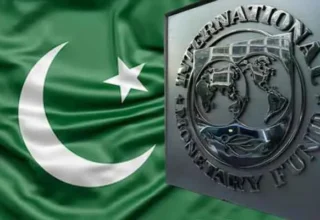
The International Monetary Fund (IMF) has issued a sharply critical 186-page report warning that corruption remains pervasive at every tier of governance in Pakistan, with the most damaging form driven by powerful political and business groups influencing key economic sectors, including state-owned and state-backed enterprises.
According to the report, Pakistan lacks any credible mechanism to measure the true scale of corruption. However, recoveries of Rs5,300 billion made by the National Accountability Bureau (NAB) in just two years provide an important indication of its magnitude. The IMF notes that even these figures represent only a partial reflection of corruption’s total economic impact.
The Ministry of Finance released the report—three months late—under an IMF requirement linked to the expected approval of $1.2 billion in two upcoming loan tranches at the Executive Board’s next meeting.
The IMF projects that if Pakistan implements comprehensive governance reforms, the country could achieve an additional 5% to 6.5% GDP growth over the next five years.
Citing Quaid-e-Azam Muhammad Ali Jinnah’s 1947 speech, the Fund states that corruption has remained the greatest obstacle to Pakistan’s economic and social development even seven decades later. The report outlines how corruption leads to wasteful public spending, market distortions, unfair competition, declining public trust, and hurdles to both domestic and foreign investment.
The IMF claims that citizens often end up paying bribes to access routine public services, while policymaking is heavily influenced by political and economic elites who use state power for personal gain. Weaknesses in the judiciary and ineffective accountability mechanisms further aggravate the problem.
The report references the 2019 sugar export permission during the PTI government as an example of how influential business groups and officials can manipulate policy to benefit themselves. Investigations later found that sugar mill owners made billions through hoarding, artificial price hikes, and money laundering via fake accounts, while consumers suffered through a nationwide price crisis. Despite clear evidence, meaningful accountability was not achieved.
According to the IMF, the judiciary is widely viewed by the public as one of the most corrupt institutions. Issues such as lack of transparency, slow case disposal, and institutional inefficiencies continue to hamper the delivery of justice.
The Fund recommends strengthening oversight of judicial officers’ performance and ethical conduct. It also notes that recent changes in the appointment procedures for judges risk undermining judicial independence unless transparent and merit-based rules are established.
The report further identifies complexities in the tax system, weaknesses in expenditure and financial management, flaws in public procurement, and poor oversight of state enterprises as major drivers of corruption. These systemic issues, it warns, not only weaken service delivery but also restrict economic growth, investment, and the efficient use of national resources.


































